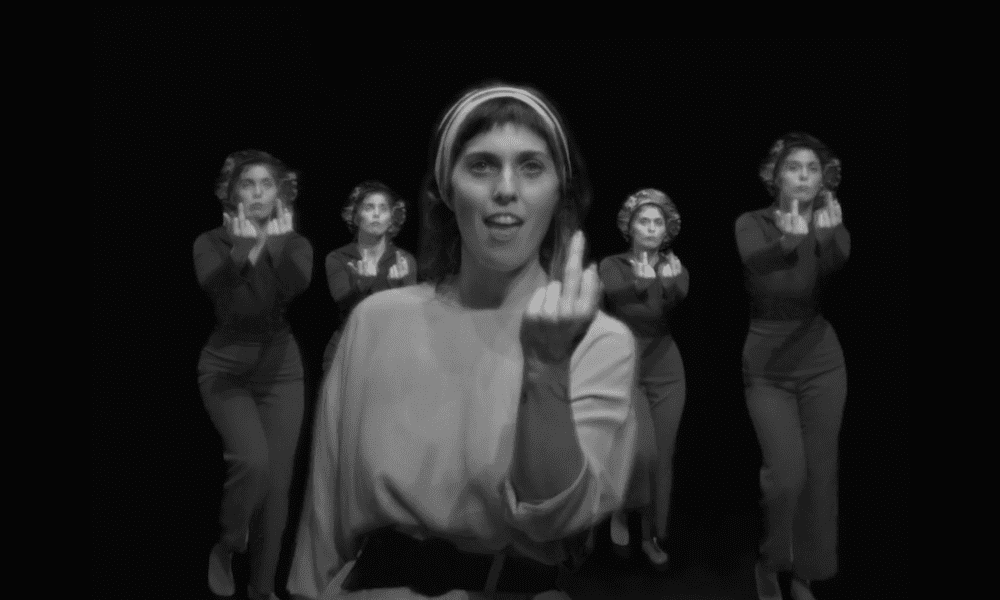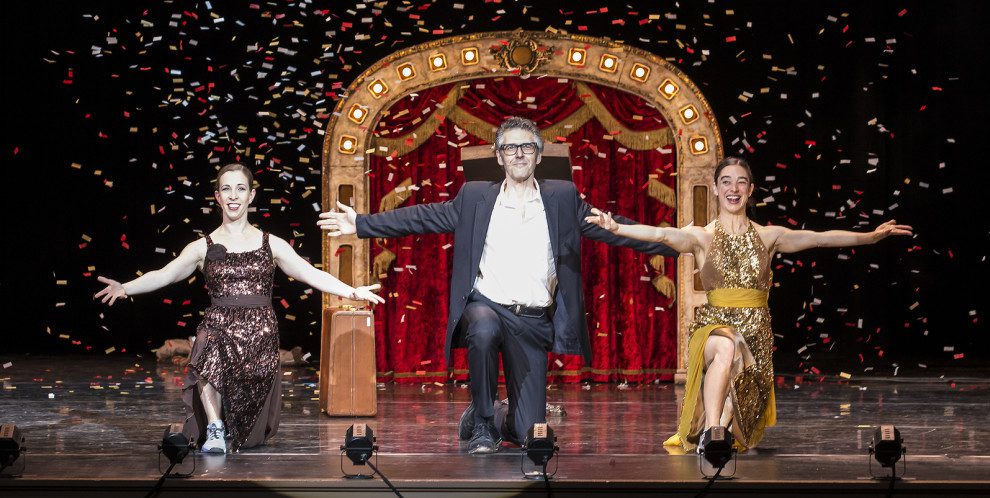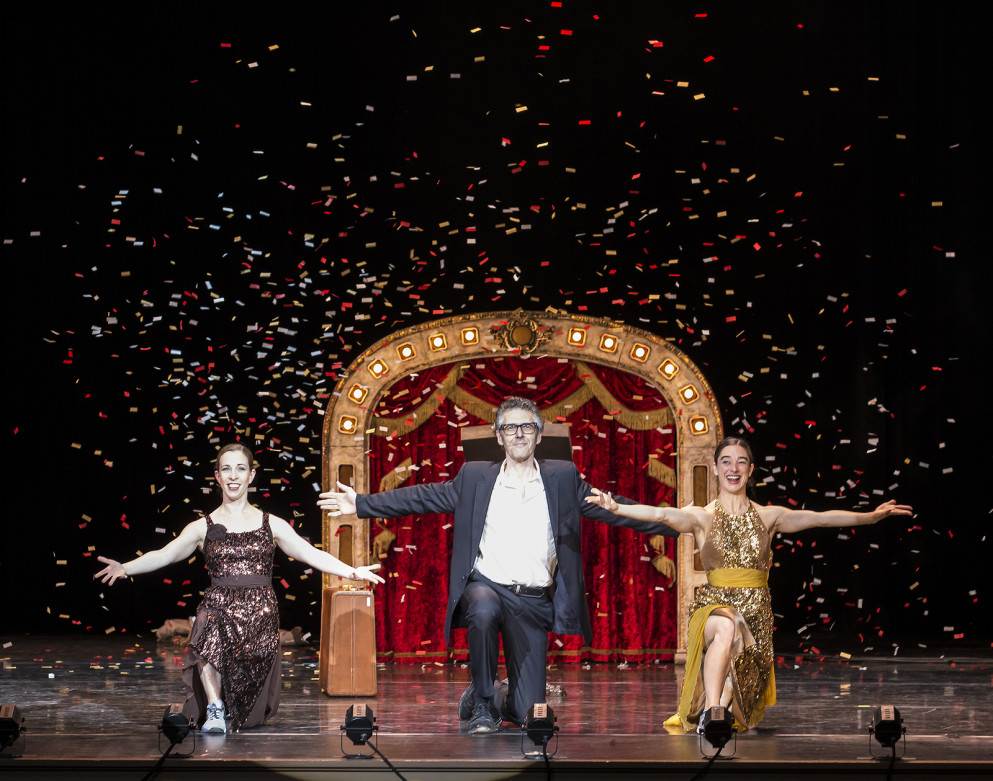ONLY NOISE: A Woman Like Your Kind

Today is International Women’s Day, and people are celebrating in many ways. This American Life devoted their entire show on Tuesday night to listening to the stories of five women who were sexually harassed by media executive Don Hazen, giving individual voice to members of the #MeToo movement. Mattel came out with 17 new Barbie dolls celebrating diverse and historic women like artist Frida Kahlo, Australian conservationist Bindi Irwin, and NASA mathematician Katherine Johnson. Our favorite female and non-binary music festival, The Hum, has announced a new run of shows slated for May, and various Women’s Day events have sprung up across the world. In my own way of celebrating women, here are five groundbreaking female musicians pushing their formats forward.
U.S. Girls
U.S. Girls mastermind Meg Remy has always looked to the past for inspiration – her decade-deep catalog often reverberating with sounds of ‘70s disco and Phil Spector’s girl groups. Those influences haven’t dissipated entirely on Remy’s latest LP In a Poem Unlimited, but Remy has forged something completely new from them. Remy has garnered more widespread attention with this album than any prior release, and while that could easily be attributed to its near perfect track list, it may have occurred as a result of topic and timing.
In a Poem Unlimited chronicles female rage in an era when it’s finally being recognized. From James Bond-tinged revenge epic “Velvet 4 Sale,” to the satirical “Pearly Gates,” Remy and her U.S. Girls collective have crafted something fresh and relevant, wrapping rocky subject matter in swaths of multicolored silk. Standout track “M.A.H.” (“Mad As Hell”) combines these two assets seamlessly, succinctly verbalizing what women have been feeling for too long over an ABBA-esque dance cut. “As if you couldn’t tell, I’m mad as hell,” she sings. “I won’t forget, so why should I forgive?/Supply me with one reason why, boy?” Pertinent questions these days.
CupcakKe
Chicago rapper CupcakKe, aka Elizabeth Harris, has been in the game for longer than you might think. Harris began releasing music on the web in 2012, and her 2016 mixtape Cum Cake caught the attention of critics for its unabashed lewdness. None of that raunchiness is lost on CupcakKe’s most recent LP Ephorize. Harris is the lightning-tongued, pornographic poet we’ve all been waiting for. Her brand of female sexuality is raw and unapologetic, debunking the myth that women are less sexual creatures than men with streams of dirty verses. She celebrates LGBTQ love on “Crayons” and her love for dick on “Duck Duck Goose.” Cupcakke is easily one of the most progressive MCs on these matters, and when it comes to the societal damning of women’s sexuality, she’s furious. “Females have sex on the first night they get called a ho for that one night stand,” she raps on “Self Interview,” “Men have sex on the first night, congratulations!” “Most wouldn’t comprehend/Double standards need to end.” Preach, High Priestess Cupcakke.
SOPHIE
Scotland born, Los Angeles based producer SOPHIE is making pop music dangerous again. The transgender artist is seemingly allergic to binaries, and therefore makes music that is difficult to categorize. There are elements of techno, disco, and deep house, but her work also boasts more the “difficult” sounds of industrial and noise music. “A lot of the stuff I’ve done takes the attitude of disco but tries to bring the sound world forward,” she told Teen Vogue last year. “We’re in a different world now. I’m trying to imagine what music that’s positive, liberating, weird, dark, and real could be in the current day.” SOPHIE has achieved all of those descriptors in her music, and she’s one of the few contemporary artists that can truly be called cutting edge. Her live shows are a mixture of theater, rave, and performance art, and her skill as a producer is unrivaled. She can turn the fizz of soda into a symphony and the screech of latex into a solo. SOPHIE will undoubtedly have a hand in how the future of pop music is shaped.
Moor Mother
Moor Mother is the project of Philly poet, musician, and activist Camae Ayewa, whose music blurs the lines between hip-hop, gothic industrial, and spoken word. Moor Mother is angry, and she has every right to be. She raps about domestic violence, race riots, and police brutality through layers of distortion, and her live sets are a blatant display of her rage. Ayewa’s music is compelling through headphones, but contagious in person; her body thrashes with each verse, making the air around her taut with fury. Her last record, 2016’s Fetish Bones is a stirring amalgam of disturbing poems laid over horror movie noise-scapes. Moor Mother’s sound is a much-needed slap in the face to oppression.
Jlin
Jerilynn Patton is one badass woman. A top-notch producer and steel mill worker from Gary, Indiana, Patton, aka Jlin, has taken the independent music community by storm with her last two records, 2015’s Dark Energy and last year’s Black Origami. Jlin’s music is instantly recognizable, and while it incorporates electronic genres like footwork and house, her stamp of authenticity lies in the clanging metallic rhythms, West African percussion, and dizzying synths she weaves through her beats. Her live sets are robust and disorienting, causing more convulsions than dancing. In an industry, and a genre (electronic music) that is overwhelmed by men, Jlin makes harder beats than just about anyone.





